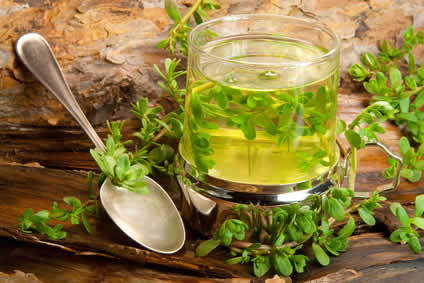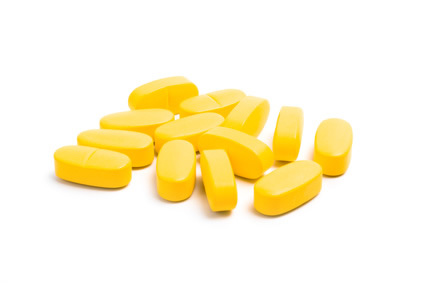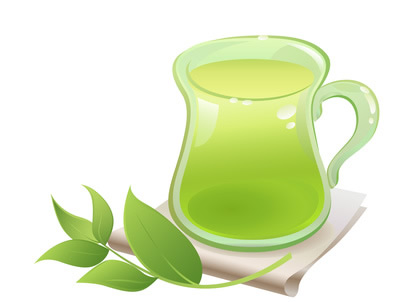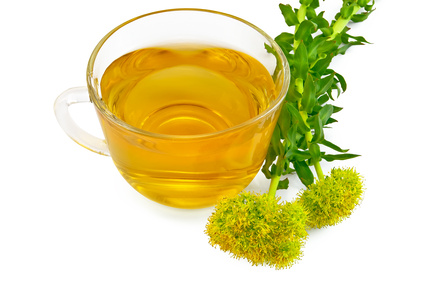Bacopa monnieri is a herb which It grows naturally in India and has a long history of use in the Ayurvedic Medicine Tradition in the treatment of a number of disorders, particularly those involving anxiety, intellect and poor memory. It is also known as Brahmi. Boasts large green leaves and purple flowers. Researches have shown that the contains many active constituents, including a number of saponins and alkaloids, however, the major constituents are the steroidal saponins, Bacosides A and B. There are some 80 different species of bacopa plant. Only bacopa monnieri has been scientifically evaluated.
Bacopa Benefits
Some studies indicate that bacopa monnieri may help preserve memory and enhance cognitive function. Compounds responsible for the medical effects of bacopa monnieri include saponins, alkaloids and sterols. Another constituents have since been identified, including betulic acid, stigmasterol, beta-sitosterol, as well as numerous bacosides and bacopa saponins. The triterpenoid saponins and their bacosides are responsible for bacopa capability to enhance nerve impulse transmission. Bacosides have antioxidant effects, enhance nerve impulse transmission and have the ability to repair damaged nerve cells. Bacosides help the repair of damaged neurons by enhancing kinase activity, neuronal synthesis, restoration and regeneration of synaptic activity resulting in nerve impulse transmission.
Cognitive Function
A 2002 study reported in the journal Neuropsychopharmacology found that using bacopa for 3 months significantly improved memory. Participants were tested on retention of new information, and the placebo group forgot the information more quickly than the group taking bacopa. One particularly study on bacopa monnieri was performed in Australia, using neuropsychological testing. These tests measure a number of different cognitive skills, such as attention, memory consolidation, short-term memory, decision making, problem solving, information processing, and verbal learning. In one group were given 300 milligrams of bacopa daily, and the others received a placebo. The tests were repeated 5 and 12 weeks after the study began. The researchers noticed an important improvement among the people in the bacopa group compared to those in the placebo group. The findings demonstrated that bacopa significantly developed performance on specific tests, most notably those dealing with information processing, verbal learning and memory consolidation.
Anxiety
 Studies in humans have found that bacopa monnieri may help to reduce stress and anxiety. In a double-blind placebo controlled study at Helfgott Research Institute, 48 participants, 65 or older, were given a daily dose of 300 mg of bacopa or a placebo for 12 weeks. Those who took the bacopa showed improved word recall memory scores in comparison to the placebo group. The Bacopa group also showed less anxiety and depression after taking the supplement when compared to the placebo group. This study provides further evidence that bacopa monnieri has property for safely enhancing cognitive performance in the elderly. Bacopa boosts the effects of certain neurotransmitters, including acetylcholine and serotonin. This effect on neurotransmitters is what enables to decrease anxiety and depression symptoms.
Studies in humans have found that bacopa monnieri may help to reduce stress and anxiety. In a double-blind placebo controlled study at Helfgott Research Institute, 48 participants, 65 or older, were given a daily dose of 300 mg of bacopa or a placebo for 12 weeks. Those who took the bacopa showed improved word recall memory scores in comparison to the placebo group. The Bacopa group also showed less anxiety and depression after taking the supplement when compared to the placebo group. This study provides further evidence that bacopa monnieri has property for safely enhancing cognitive performance in the elderly. Bacopa boosts the effects of certain neurotransmitters, including acetylcholine and serotonin. This effect on neurotransmitters is what enables to decrease anxiety and depression symptoms.
Epileptic Seizures
Some studies suggest that bacopa could reduce the frequency and duration of epileptic seizures by regulating the activities of the GABA (gamma-aminobutyric acid) receptors. GABA controls important functions of the central nervous system. A study on thirteen epilepsy patients using a defatted, ethanolic extract of bacopa was performed over a 5-month period. The participants showed improvement in the frequency of seizures over a period of 2 to 5 months. The seizures ceased in 5 cases.
Antioxidant Activity
Bacopa seem to have important antioxidant activity in the brain, which may protect brain cells from damage caused by free radicals, waste substances that can have toxic effects on cells. A study at the University of Catania, found that Bacopa’s antioxidants have a protective property on human DNA fibroblasts, suggesting that this herb may be helpful in the treatment of diseases in which free radicals play a key role.
Bacopa Dosage
Bacopa monnieri extract is available in powders, capsules, syrups and teas. The dose for bacopa monnieri is generally 200-400 mg per day in 2 or 3 divided doses of an extract standardized to 20 percent bacosides.
Bacopa Side Effects
Although bacopa monnieri is generally considered safe, it may cause side effects such as nausea, dry mouth and muscle fatigue. Though bacopa has not been shown to be harmful to pregnant women, caution should still be exercised. Individuals taking antidepressants or antipsychotics that are metabolized by cytochrome P450 enzymes should not take B. monnieri because it interferes with the metabolization and elimination of the drugs which can lead to overdose. Bacopa can cause heart palpitations. Check with your physician before taking bacopa if you have heart problems. Patients taking thyroid medication should be careful as this plant can increase the concentration of the thyroid drugs. Bacopa may affect male fertility. Has been reported to reversibly suppress spermatogenesis and fertility in male mice at a dose of 250 mg/kg body weight/day (equivalent to a 19 gram dose for a 76kg male) for 28 and 56 days.
 Goldenseal root is considered to be an effective broad spectrum antibiotic. Its antibiotic and anti-inflammatory effects have led researchers to study goldenseal root as a possible alternative to chemical antibiotics. It is found that using goldenseal helps reduce flu and cold symptoms considerably. This is mainly because of the berberine content in goldenseal which contains powerful antibiotic and antiseptic effects.
Goldenseal root is considered to be an effective broad spectrum antibiotic. Its antibiotic and anti-inflammatory effects have led researchers to study goldenseal root as a possible alternative to chemical antibiotics. It is found that using goldenseal helps reduce flu and cold symptoms considerably. This is mainly because of the berberine content in goldenseal which contains powerful antibiotic and antiseptic effects. Hypertension is known as high blood pressure. The World Health Organization defines hypertension as blood pressure higher than 140/90. Hibiscus tea reduces blood pressure in prehypertensive and mildly hypertensive people. Some research has demonstrated that they have a diuretic effects and have found mild blood vessel–dilation property. Studies done at “Tufts University” of Boston show that drinking 3 cups of hibiscus tea each day lowers blood pressure by an average of 6 points. For 6 weeks, 65 adults who had mildly elevated blood pressure drank either 3 cups of hibiscus tea or a placebo beverage each day. After 6 weeks, systolic blood pressure in individuals drinking the hibiscus tea was significantly reduced. Compared with the baseline measurements, hibiscus tea reduced systolic blood pressure by 5.5% whereas no reduction was seen in the placebo group.
Hypertension is known as high blood pressure. The World Health Organization defines hypertension as blood pressure higher than 140/90. Hibiscus tea reduces blood pressure in prehypertensive and mildly hypertensive people. Some research has demonstrated that they have a diuretic effects and have found mild blood vessel–dilation property. Studies done at “Tufts University” of Boston show that drinking 3 cups of hibiscus tea each day lowers blood pressure by an average of 6 points. For 6 weeks, 65 adults who had mildly elevated blood pressure drank either 3 cups of hibiscus tea or a placebo beverage each day. After 6 weeks, systolic blood pressure in individuals drinking the hibiscus tea was significantly reduced. Compared with the baseline measurements, hibiscus tea reduced systolic blood pressure by 5.5% whereas no reduction was seen in the placebo group.  Curcumin may help prevent and treat cancer by different mechanisms. Curcumin has been found to inhibit the activity of several matrix metalloproteinases in cell culture studies. Angiogenesis is the scientific term meaning the process which a tumor uses to promote blood vessels growing into a tumor. Curcumin has been found to inhibit angiogenesis in cultured vascular endothelial cells and in an animal model. Laboratory studies have shown that curcumin induces programmed death of colon cancer cells. Curcumin also suppresses colon cancer when combined with other polyphenols such as
Curcumin may help prevent and treat cancer by different mechanisms. Curcumin has been found to inhibit the activity of several matrix metalloproteinases in cell culture studies. Angiogenesis is the scientific term meaning the process which a tumor uses to promote blood vessels growing into a tumor. Curcumin has been found to inhibit angiogenesis in cultured vascular endothelial cells and in an animal model. Laboratory studies have shown that curcumin induces programmed death of colon cancer cells. Curcumin also suppresses colon cancer when combined with other polyphenols such as  Rhodiola rosea has been clinically shown to stimulate
Rhodiola rosea has been clinically shown to stimulate